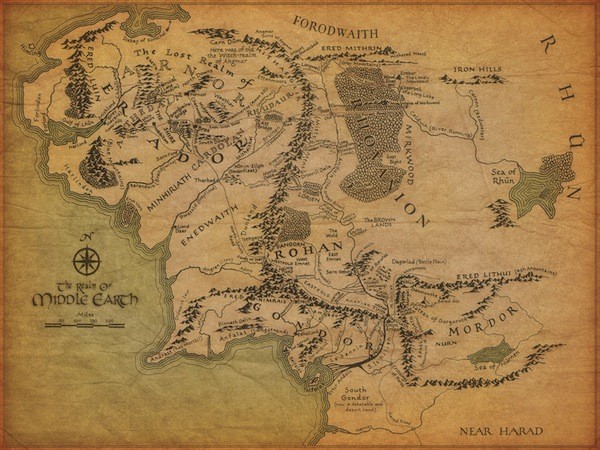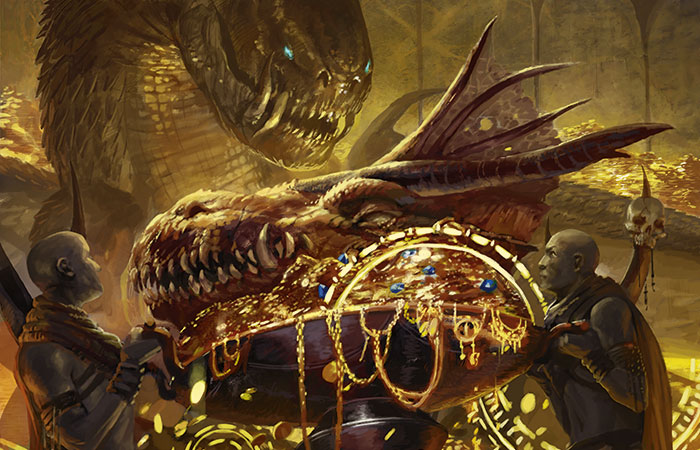Are you a Quiet Speculation member?
If not, now is a perfect time to join up! Our powerful tools, breaking-news analysis, and exclusive Discord channel will make sure you stay up to date and ahead of the curve.
Welcome back readers! Today's article is based on a little introspective thinking I did the other day.
As I've been speculating on Magic now for over five years (it's hard to believe), I've definitely had some big wins and losses. I've stated in many previous articles that I never speculate on a card unless I myself believe in it. I definitely respect the opinions of my fellow speculators and writers, but in the end it's my money and the risk I take purchasing any cards is on me. Therefore, it's important that I not just follow a trend blindly.
This is also the reason that I feel it's critical for anyone who wants to voice their opinion on a speculation target to do so with valid reasoning behind it. This isn't to call out anyone in particular, but to remind everyone who is thinking of speculating on a card that there is risk associated with doing so, and you should not only understand the risks but also why you're willing to take them.
If you want a great example of this look at my fellow writer Sigmund Ausfresser. If you read his articles (and I suggest you do) you'll see he almost completely ignores Standard and focuses a lot on Old School and Reserved List cards. Both of these types of targets are very low-risk—Reserved Lists can't be reprinted per Wizard's stated policy, while Old School legality is defined specifically using print date (so reprints of the playable cards are still illegal).
For some speculators, this might seem like a severely limited pool of cards to choose from, but Sig's logic behind choosing these types of cards is sound. He has stated repeatedly that the goal of his speculation is to fund his child's (soon to be children's) college education. This is his "why," and as such he finds it unacceptable (and I imagine his wife does too) to risk the college fund on less stable speculations.
What Is Your "Why"?
I'll be the first to admit that when asking myself this question I immediately drew a blank, and that's a bit terrifying. The reason is because I've amassed a sizable collection and it's sometimes hard to look at the new sets and think, "And now it'll grow more," with no idea of when it will shrink.
That isn't to say I hate having so many cards because I don't. As a child playing Magic, I remember that my allowance could afford me about a pack per week (back when they were around $3 each) so it took me a long time to fill up even a single 1000-count box.

When I first started speculating it was so that I could afford Legacy (a format near and dear to my heart). I couldn't fathom spending $100 on an Underground Sea. But I realized that if I could identify an underpriced card and pick up multiple copies, I could effectively buy an expensive card at a huge discount. After my pick went up (assuming I hit) I could then trade my copies into other cards to "lock in" my gains.
My biggest early success came from buying and trading for all of the Innistrad buddy lands in the $2-$3 dollar range. When they spiked after Zendikar rotated, I traded them into my LGS for a NM Italian The Tabernacle at Pendrell Vale (which at the time was around $300). All in all, I spent about $85 on the buddy lands that I traded in for the Tabby.
That got me hooked. My next goal became getting my set of 40 duals and 40 fetches. Once that was accomplished, I simply wanted to have a set of every Legacy-playable card so I could build any deck I wanted.
I eventually abandoned that goal. I was putting a ton of money into the game, and after building multiple Legacy decks, I found that I only actually enjoyed playing a couple. So I cancelled that goal and have been in autopilot mode ever since. It's important to remember that while we want to try to reach goals we set, it's perfectly acceptable to re-evaluate them—especially if on the path of reaching them we realize they are not in fact where we want to go.
Now my favorite trades are for bulk rares, and Commander and Modern cards that I think are underpriced. This unfortunately means that I don't do nearly as much trading as I used to. When I go to GPs and other major events, I spend most of my time buylisting stuff to dealers (so I guess I am shrinking my collection down somewhat, but it sure doesn't feel like it) instead of trading with players.
In the process of writing (and a lot of introspective thinking), I've come to a conclusion regarding what my goal in MTG speculation should be. It is likely one that many of you share: to reduce the cost of playing the game regularly, or semi-regularly, to less than $15 a month. For me, that will include tournament entry as well, which means any larger, more expensive tournament I play in will require having built up a "bank" through card sales to cover the cost.
I chose this goal because I've realized that I can't specify how much I've spent on the game, or how much I have worth of cards, and that bothers me somewhat. I had intended to do a full catalog of everything this summer (when I was between jobs) but I ended up doing a lot of sorting and much needed housework.
That being said, I have a whole lot of money invested in cards, and I'd like to slowly start locking in some of my gains and liquidating some assets. I had been doing that by buylisting (as previously mentioned) but I want to take a more active role (likely selling locally and on Facebook).
How Goals Can Drive Decisions
If we consider the "why" to be our goal or the reason behind our choices, then it's extremely important to know it. Without it we are travelers without a map. Each choice moves us in a direction, but with no final destination in sight we can't know if we're going in the right direction or not.

As I've always been one who best learned by examples, let's consider a made-up speculator named Alex.
Alex wants to get into Modern but just started playing the game four months ago. He or she doesn't have a whole lot of cards, nor do they have a lot of extra money lying around (perhaps Alex is in college and most of their paycheck has to go towards living expenses). But Modern looks like a lot of fun, and the local game store has a good Modern and Standard player base.
The first step for Alex would be to watch some of the other Modern players and get a feel for what type of deck they want to play. With a limited budget in an expensive format, switching decks often will not be possible.
The easiest way to figure out if you enjoy playing a deck or not is to proxy it up and get a feel for by playing casually with other players. Through this process, and talking with the other Modern players about what kinds of options are available, Alex can make a decision of what deck to buy.
Now that Alex has picked out a deck they want to build, then all transactions (trades and buys) should help Alex get one step closer to the deck of choice. This isn't to say Alex shouldn't buy or speculate on cards that happen to be a great deal, but that they must be vigilant with their decisions.
If Alex buys some hot Standard card because it's 10% off, it may end up biting them when the deck it was played in falls out of favor and it drops to 50% of what they paid for it. Sometimes a short-term "win" can be a long-term loss.
So Alex is smart and chooses to pass on that Standard card even though it's on sale. As Alex acquires cards for the deck, he or she pulls out the proxies and puts the new cards in their place. All while playing more casual games with the other Modern players and getting a better feel for the deck. By the time he or she completes the deck, they will have a good feel for it. The deck itself serves as the map, as each time a proxy gets replaced another step has been taken getting closer to the final destination.
Conclusion
The purpose of this article was to make you (the reader) think about why you speculate. Knowing that should ultimately help drive the decisions you make. There are so many decent speculation targets out there, but nobody (whether here on QS or elsewhere) has unlimited funds. So it's important to try to make your maximize the growth of your money—but also to know what you'll do with it once it is made.






I don’t speculate much, I would rather think about why I am into MTG Finance. The difference being that there are large parts of MTG Finance where you don’t speculate but instead do arbitrage. That’s what I mostly do.
I had always enjoyed trading. I had been in a bit of a lull when it came to Magic as I had no people to play with, but then I was invited to join a casual group that played most Sundays and included a few people I already knew. I found that while I still knew how to trade I was not as accurate on pricing as I once was. I decided to see what I could find online in regard to Magic trading and came across the earlier incarnation of Quiet Speculation (if I remember correctly this was even before it was called Doubling Season). I read all articles on a regular basis and brought my trading game back to its old level.
I’ve always liked discussing Magic and when QS turned into what it is today I quickly became a member, most often found on the forums. I was always a bit of an odd duck as I am primarily a casual player and because of my old school trading experience that few shared. I found I had sometimes to contribute.
Throughout the years I evolved into a mix of casual player, collector and trader. I’ve described how they interact in one of my articles so I won’t go into detail here, but it’s good to know that I fall on the fanatical side. When I picked up a large collection a couple of years ago the collector and player decided that it would be a good idea to obtain a playset of Magic (expensive restricted cards 1x) while the trader was ok supporting that as long as it wasn’t too bad for my trade stock. I aim for the first English printing of a card with normal corners and NM.
At this point I am basically into MTG Finance to make this goal as cheap as possible and in fact have been getting slightly more money out of MTG than I am putting in. I mostly do this by trading for bulk rares and buying collections, flipping both to a store I have an arrangement with after taking out those cards I was still missing, but every now and then I do some minor speculation and I also get compensated for my contributions here on QS.
I’m currently at 91% of the playset and 96% for unique cards and both are slowly but steadily increasing without me having to put in extra money. I own almost everything played competitively in Eternal formats (though for a few cards upgrades to a different set or condition would be welcome).
Thanks for sharing Pi. I love hearing the different reasons people are into MTG finance as it’s important to remember that in every transaction (trade or purchase) both parties have a goal and it’s quite often that both players have different goals. Knowing this helps one so to make both parties happy with any given trade. I would also like to throw out there that your collecting goal is really impressive and I think it’s awesome how well your doing regarding such a Titanic goal.
You’re welcome david.
Someone once wrote on my MOTL ref list: “Trading as it should be: to mutual advantage”. It’s easiest to accomplish this when both parties have different goals.
Interestingly there is still quite a lot of bulk I am missing. The numbers do include some yet to be received cards for which I have a deal with the shop I most commonly use that basically comes down to them delivering a playset of Mythics of a set at any point before its rotation. Otherwise I was mostly helped by buying a collection 2 years ago that pretty much doubled my collection in size and that contributed a lot of cards towards my goal. It was at this point that I decided to set my goal. As of today there are still 2288 different cards on my wants list.
I like the article. My goals are probably a bit unusual. With two young kinds and a fulltime++ job, I get to actually play magic maybe a couple times each year at most. The finance side of mtg lets me stay connected to new cards (at least once they rotate — completely with Sig and others on ignoring standard).
When I got involved with mtg finance about 3.5 years ago, I had a good collection of cards from roughly Legends through Urza’s block that had been sitting in a closet. My bankroll came from liquidating some of those cards (keeping anything I want for the longterm, such as my set of revised duals). Since then I’ve tried to make it largely cash neutral — I’m not trying to pull out dollars, but I try to avoid putting any in either. I take my earnings in the form of vintage and legacy cards, not so much as long term gainers (though many can also be that) but rather as the cards I want to own long term.
So for me mtgfinance is about keeping tabs on what is happening in a game that I enjoy but rarely get to play, while also improving my collection with an eye toward formats I’d like to play more in the future.
Thanks for sharing. I wouldn’t be surprised if we have a lot more MTG financiers with a similar goal. As the people who enjoyed the game during its early stages age it is likely we will see a lot more people taking more of a backseat and just making it out to play when they can. I honestly see myself slipping more and more into this category especially as I age and move more towards wanting a family.